Understanding Globalization Through Chungking Mansions

Speaker: Prof. Gordon Mathews (Department of Anthropology)
| Date: | 24 February 2012 (Fri) |
| Time: | 4:00pm |
| Venue: | LT2, 7th Floor, Mong Man Wai Building, CUHK |
| Language: | English |
| Abstract: | Chungking Mansions is perhaps the most globalized building in the world. It is where traders from sub-Saharan Africa and across the globe come to seek their fortunes, in buying cheap goods from China and taking them home in their luggage or by container, to be sold in the marketplaces of cities such as Lagos, Nairobi, and Karachi. Chungking Mansions is a central node in “globalization from below”: not the globalization of multinational corporations with their billion-dollar budgets, but of traders crossing continents with their goods, working through personal connections under the radar of the law. |
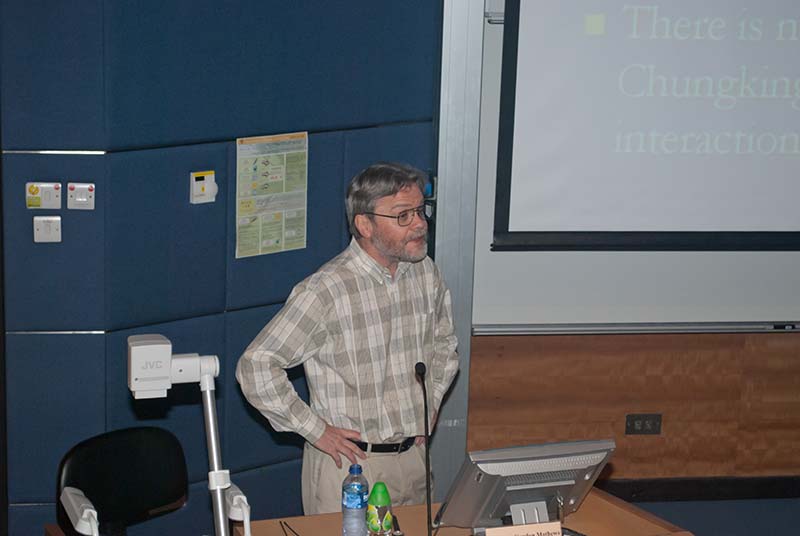
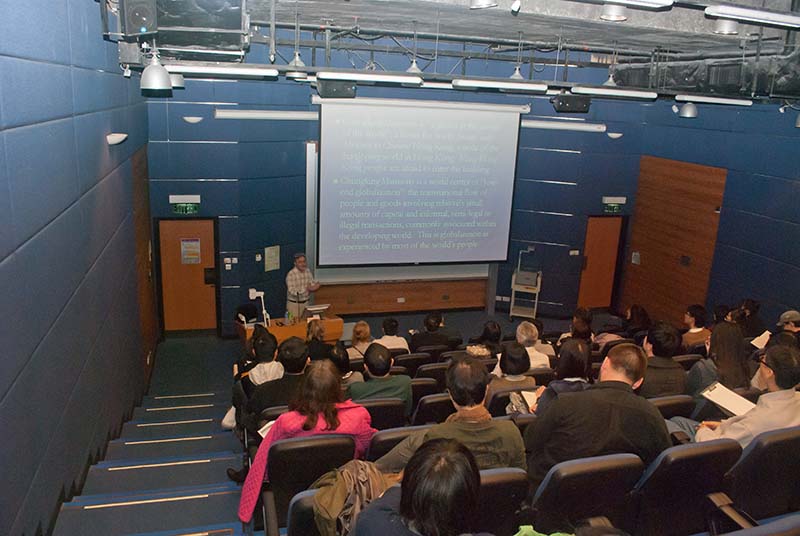
Professor Leung Yuen-sang, Dean of Arts, inaugurated the colloquium series at the first lecture.
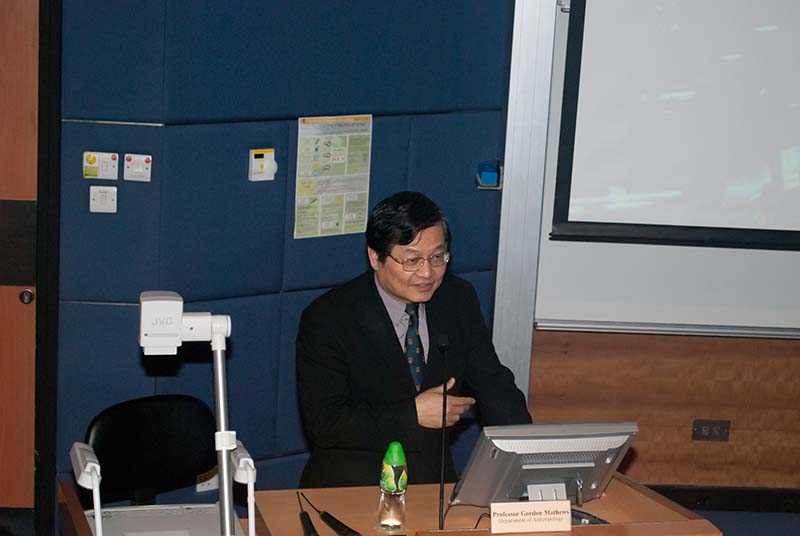
For the powerpoint presentation of the talk, please click here
For those who would like to review the video archive of the talk, please contact the Faculty Office at 3943 7107.
Wenn in Time: Linguistic Moments in Robert Schumann's Dichterliebe

Speaker: Prof. Mak Su Yin (Department of Music)
| Date: | 30 March 2012 (Fri) |
| Time: | 4:00pm |
| Venue: | LT2, 7th Floor, Mong Man Wai Building, CUHK |
| Language: | English |
| Abstract: | That song is both a concrete musical entity and an abstract metaphor for subjectivity is the central paradox of musical lyricism. This talk explored its temporal implications by examining the aesthetic assumptions and characteristic discursive strategies of the lyric mode in romantic poetry and music, and argued that both were guided by a paradoxical ambition to efface time through linguistic means. In the case of music, “language” will be understood as the language of common-practice tonality. The discussion relied upon concepts drawn from both traditional poetics and modern literary theory. Several instances of syntactical and temporal interplay in Schumann’s song cycle Dichterliebe, a work in which the lyrical sensibility is explicit, were then analysed. Finally, the philosophical and semiotic implications of lyricism’s engagement with temporality were considered with reference to Nietzsche’s conception of the Augenblick. |
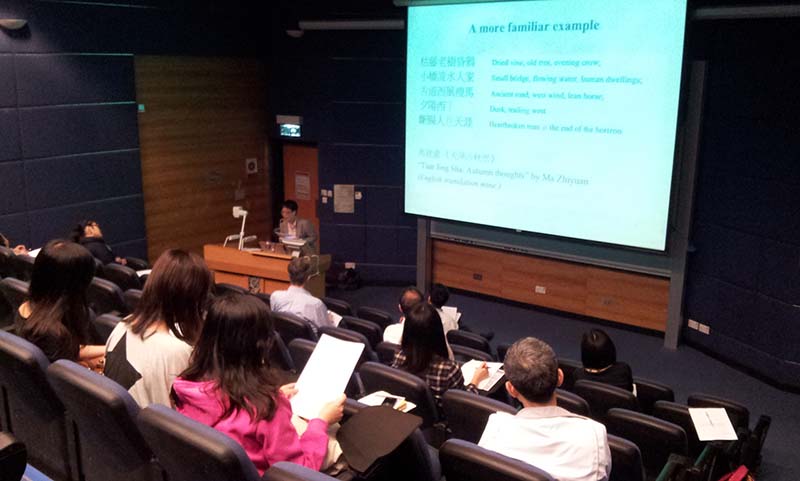
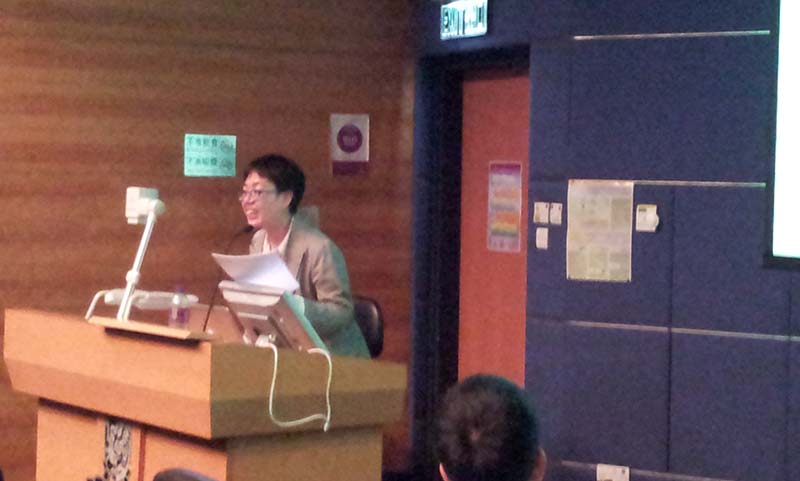
For the powerpoint presentation of the talk, please click here
Prelude to 1997: notes on Hong Kong's future under Governors Trench and Maclehose

Speaker: Prof. David Faure (Centre for China Studies)
| Date: | 27 April 2012 (Wed) |
| Time: | 4:00pm |
| Venue: | LT2, L/G, Lee Shau Kee Building, CUHK |
| Language: | English |
| Abstract: | The year 1997 marked a watershed in the history of Hong Kong, and prior to that, the joint declaration in 1982. The long process leading to the return of Hong Kong to China was often traced to Sir Murray Maclehose’s visit to China in 1979. Based on declassified documents made available to the public last year, Professor Faure analyzed what was said on that occasion. He discussed Sir Murray's achievements in the context of the historical circumstances as revealed in the documents. Professor Faure also went into the history of Sir David Trench’s rule from 1964 to 1971, holding the view that in many ways, towards the end of its days, Hong Kong was a very exceptional colony, and that record paved the way to what Hong Kong is today. |

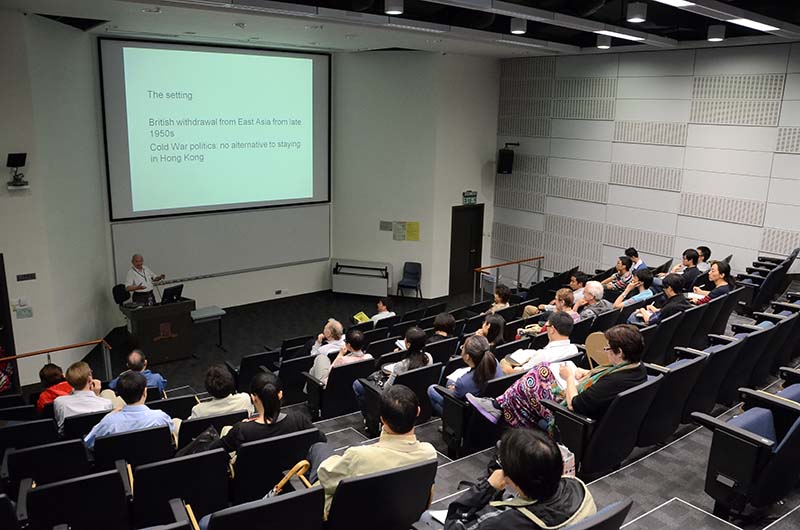
For the powerpoint presentation of the talk, please click here
Sound and thought in Chinese

Speaker: Prof. Feng Shengli (Department of Chinese Language & Literature)
| Date: | 25 May 2012 (Fri) |
| Time: | 4:00pm |
| Venue: | LT 2, L/G, Lee Shau Kee Building, CUHK |
| Language: | English |
| Abstract: | In post-war France there was a famous debate between Lévi-Strauss (1908-2009) the structural anthropologist and Sartre (1905-1980) the existential Marxist philosopher. While Sartre criticizes the a-historical character of Lévi-Strauss’ structural method, Lévi-Strauss retorts that Sartre’s philosophy of consciousness is unable to account for the unconscious dimension of human and cultural life. Against the background of this debate, this talk proceeded in 3 steps. 1) To consider in what way Lévi-Strauss’ structural approach constitutes a severe challenge to phenomenology as a philosophy of subject. 2) To explore in what sense the late ontology of the French phenomenological philosopher Merleau-Ponty (1908-1961), by returning to the pre-objective order of brute being and savage spirit, shares some important insights of Levi-Strauss' structural anthropology and hence can accommodate the challenge from the latter. 3) To draw the implications for intercultural understanding out of this anthropological-philosophical confrontation from a phenomenological perspective. |
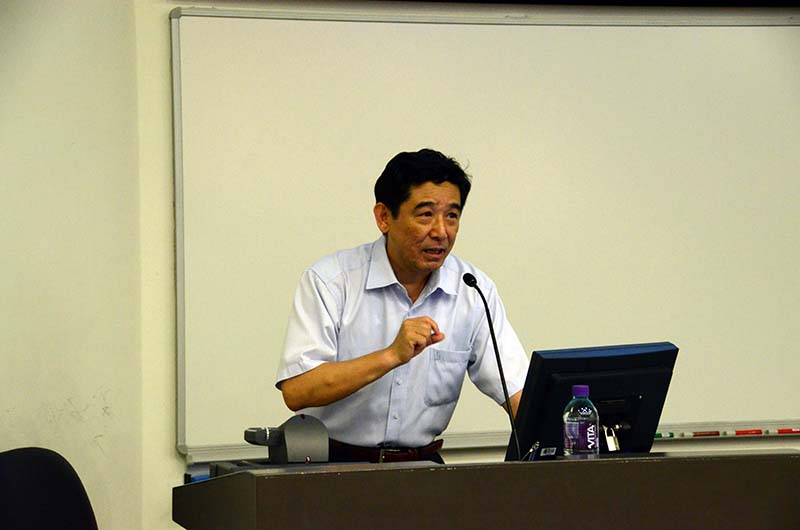
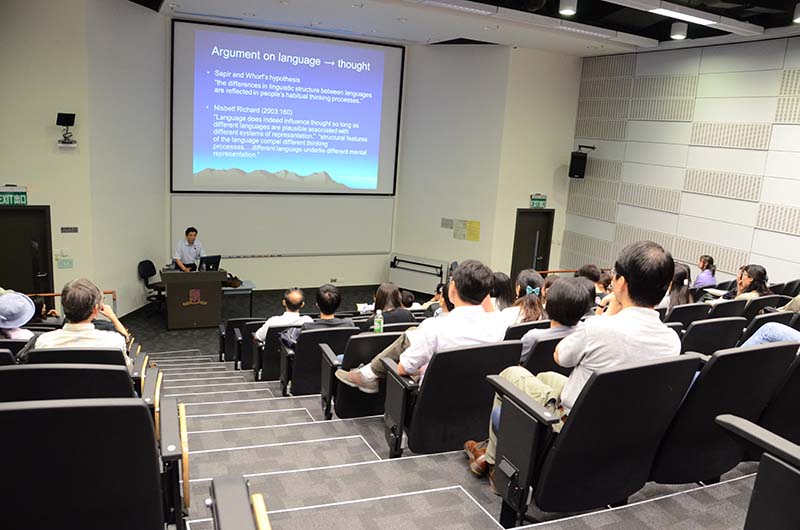
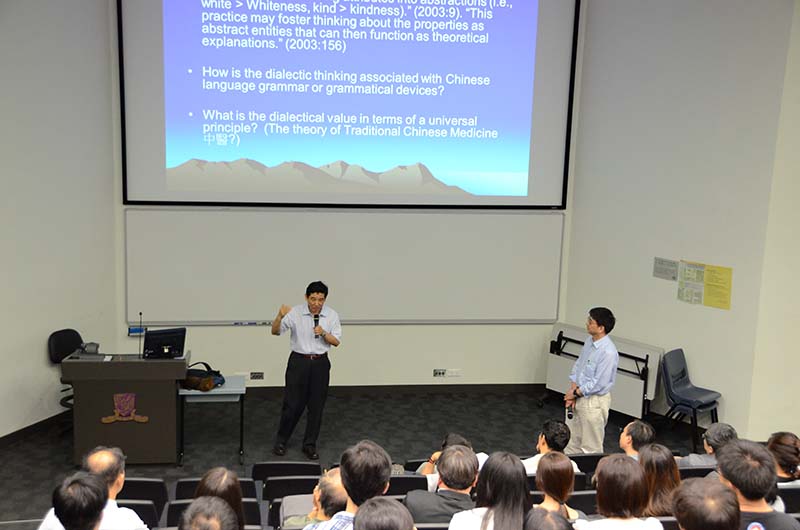
For the powerpoint presentation of the talk, please click here
Lévi-Strauss and Merleau-Ponty: from Nature-Culture Distinction to Savage Spirit and their Intercultural Implications

Speaker: Prof. Lau Kwok Ying (Department of Philosophy)
| Date: | 8 June 2012 (Fri) |
| Time: | 4:00pm |
| Venue: | LT 2, L/G, Lee Shau Kee Building, CUHK |
| Language: | English |
| Abstract: | In post-war France there was a famous debate between Lévi-Strauss (1908-2009) the structural anthropologist and Sartre (1905-1980) the existential Marxist philosopher. While Sartre criticizes the a-historical character of Lévi-Strauss’ structural method, Lévi-Strauss retorts that Sartre’s philosophy of consciousness is unable to account for the unconscious dimension of human and cultural life. Against the background of this debate, this talk proceeded in 3 steps. 1) To consider in what way Lévi-Strauss’ structural approach constitutes a severe challenge to phenomenology as a philosophy of subject. 2) To explore in what sense the late ontology of the French phenomenological philosopher Merleau-Ponty (1908-1961), by returning to the pre-objective order of brute being and savage spirit, shares some important insights of Levi-Strauss' structural anthropology and hence can accommodate the challenge from the latter. 3) To draw the implications for intercultural understanding out of this anthropological-philosophical confrontation from a phenomenological perspective. |
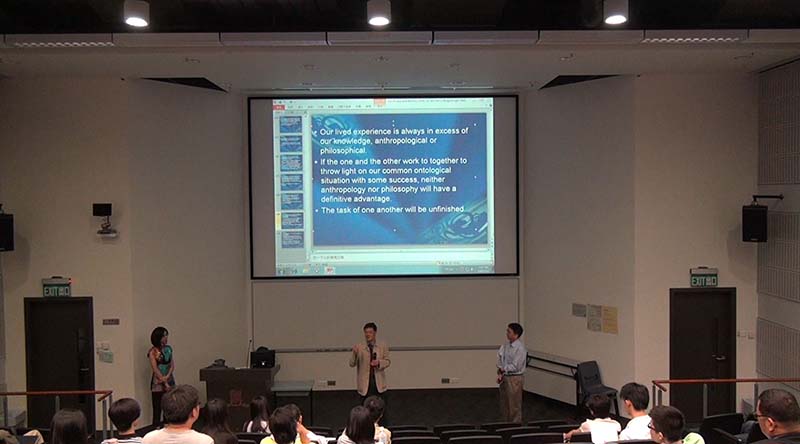
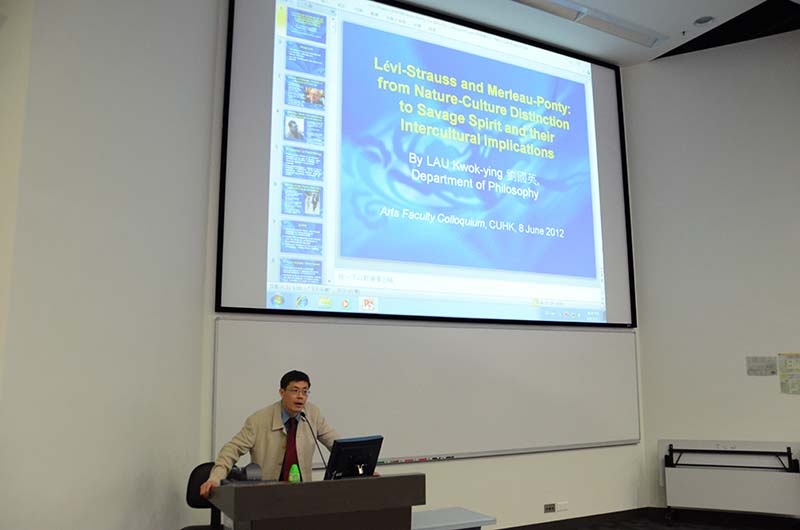
For the powerpoint presentation of the talk, please click here




